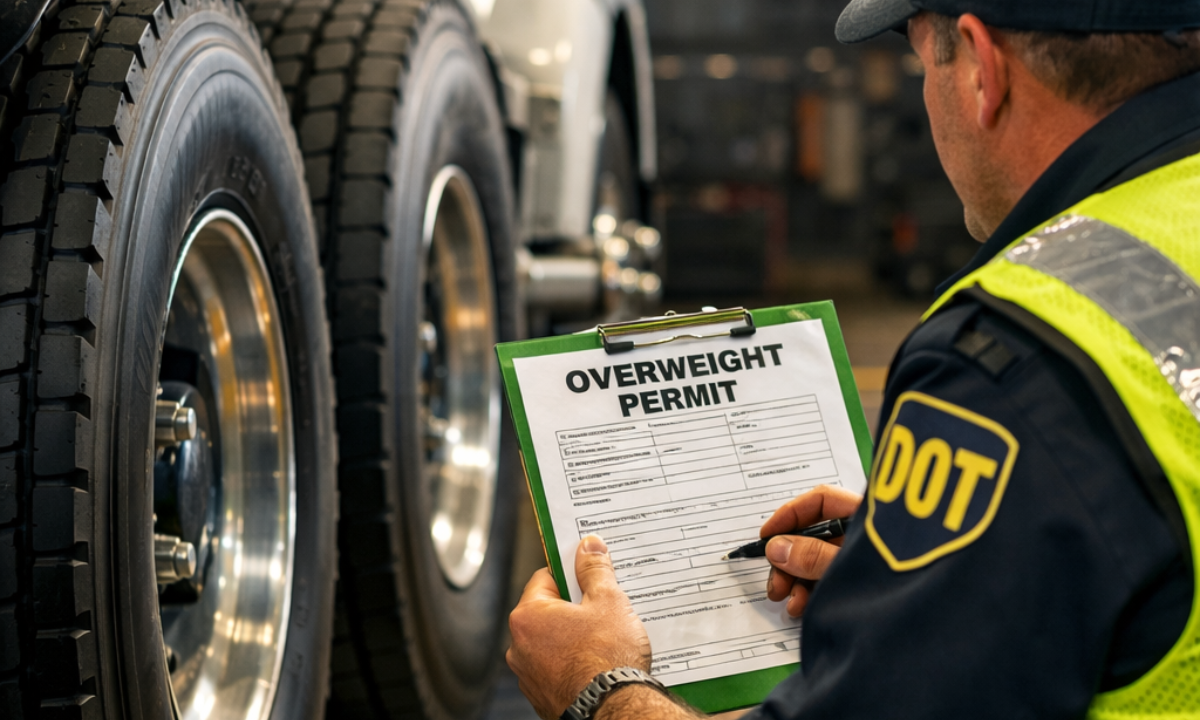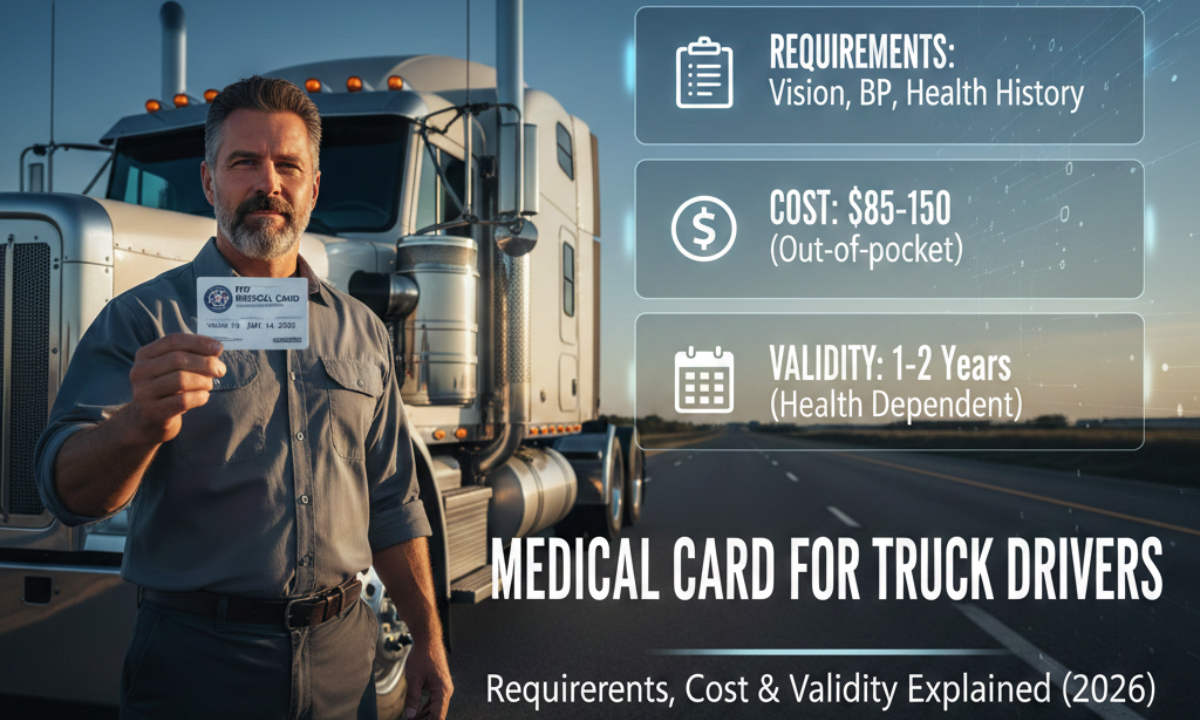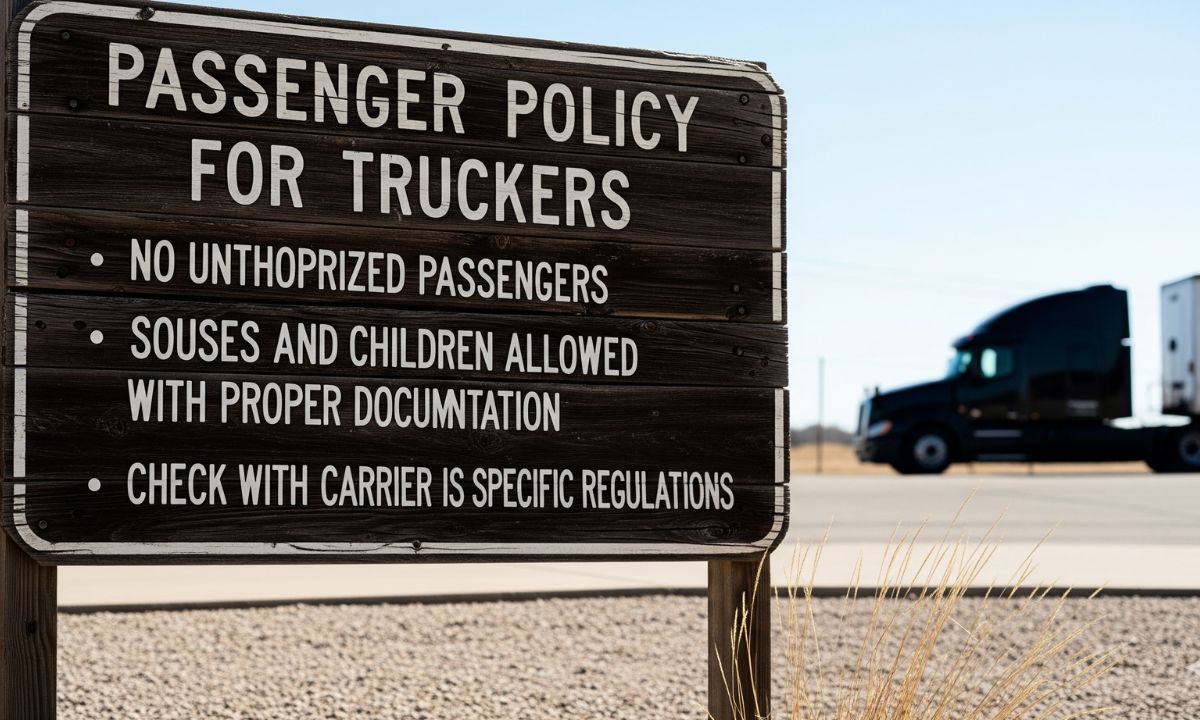Do companies have a passenger policy (rider policy)?
Trucking Companies and Passenger Policies: What Drivers Needs to Know
Many professional drivers spend days and sometimes months on the road. They can spend weeks to months on the road, which can sometimes be isolating, and to improve the work-life balance, most trucking companies have provisions for allowing passengers to accompany the drivers under specific passenger or rider policies. While these programs provide flexibility, the rules, safety standards, and financial considerations have to be understood by drivers.
Why Companies Offer Passengers Policies
Most passenger policies are meant to improve the welfare and retention of drivers. An opening for a family member or spouse or partner or close friend to ride along has allowed companies to bring some little form of companionship to the driver and thus minimize stress during long-haul trucking. It can also serve as a way to improve job satisfaction and serves as a tool for recruiting drivers.
Most Commonly Found Requirements in Rider Policies
The guidelines are set by each carrier for its passengers. Although the specifics vary from one rider program to another, most include some or all of the following elements:
- Age limitations: Minimum ages for airline passengers generally fall between 10 and 12 years; minors usually need written approval.
- Insurance coverage: Sometimes, but not always, there is a rider insurance fee that protects the company as well as the passenger in regards to accidents.
- Prerequisite documents: Prior to trips, companies usually require approval forms as well as waivers for use.
- Authorized relations: Policies restrict the selection of passengers to spouses, family members, or close friends.
- Times of year: Some companies offer accompanying passengers only at certain times of the year.
These guidelines ensure safety compliance and limit the liability of the company.
Financial Implications and an Insurance Perspective
Norms of the industries may require an employee to purchase rider insurance, with such fees ranging anywhere from $20 to $50 monthly or charging a flat rate annually. This protects against any incurred medical expenses as a result of accidents or liability issues. Drivers can check for refundable rider fees and if it would apply for every trip or every passenger.
Who Comprises a Passenger?
Eligibility is determined by the company. Some companies explicitly list whomever other than spouses or immediate families allowed to ride on a truck; a few carriers even reserve special invites that will allow one to travel with its charity-affiliated partner. Understanding these distinctions helps drivers to plan ahead when selecting a firm.
Safety and Compliance Regulations
Companies have strict and firm rules with respect to the passenger indeed to enforce safety on trips: Seat belts at all times during travel, no interference with driving tasks or company equipment, compliance with Electronic Logging Device (ELD) regulation as per driving hours, no unauthorized rides outside of the approved policy. Carriers that have a well-defined rider safety scheme are responsible for both their drivers and passengers.
Benefits of Rider Policies
Having passengers in truck travel can lead to bending isolation and better mental health for drivers on the long haul. Bring the spouse or children along will also strengthen family ties. More job satisfaction and driver retention, flexible lifestyle with a more attractive trucking environment for new recruits. The same passengers program would also help averting on-road drivers from leading an unhealthy lifestyle due to complaints on work-life balance.
Limitations and Restrictions
Not all companies have rider policies. The ones that do can sometimes limit:
- Length of trip (short-haul vs. long-haul).
- Geographical areas (no passengers through hazardous or international routes).
- Fleet type (certain divisions may exclude riders).
Insurance requirements and safety regulations usually dictate these sorts of restrictions.
Choosing a Company with a Robust Rider Policy
Usually, the best trucking companies providing passenger services are those that have:
- Affordable or waived rider insurance fees.
- Clear documentation and process approvals.
- Flexibility in eligibility requirements.
- Strong commitment towards family and driver satisfaction.
Such driver benefits related to passenger policies would possibly yield the firm with a comparative edge over competitors during recruitment and retention.
Disclaimer: The information provided in this blog post is for general informational purposes only. While we strive to keep the content accurate and up to date, we do not guarantee its completeness, reliability, or accuracy. Any actions you take based on this information are strictly at your own risk. We are not responsible for any losses, damages, or inconveniences that may arise from the use of this blog.












